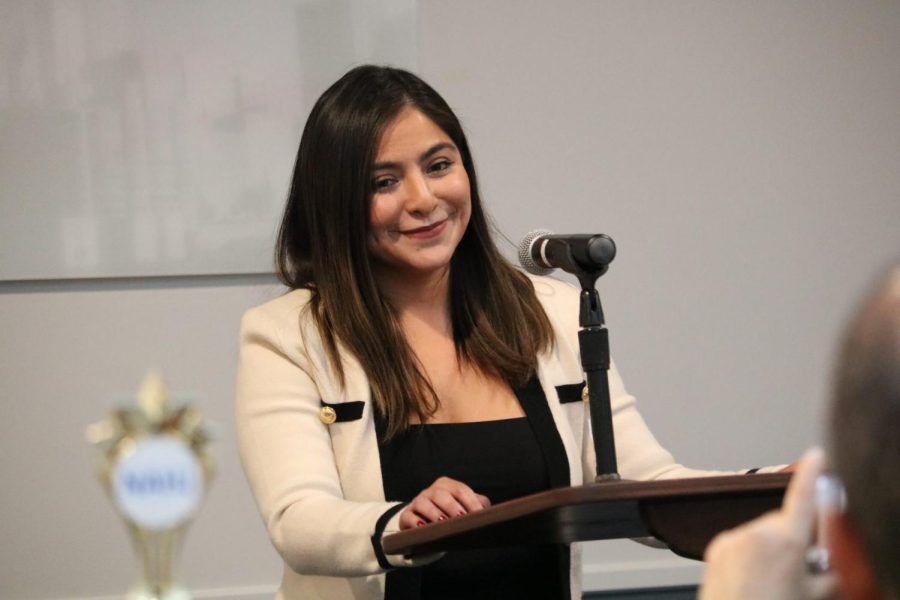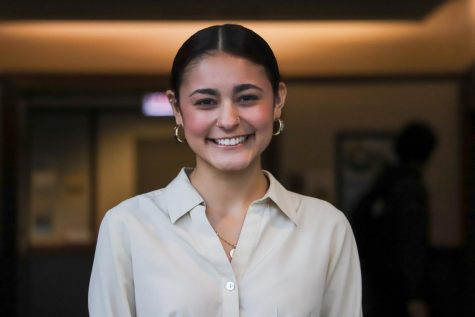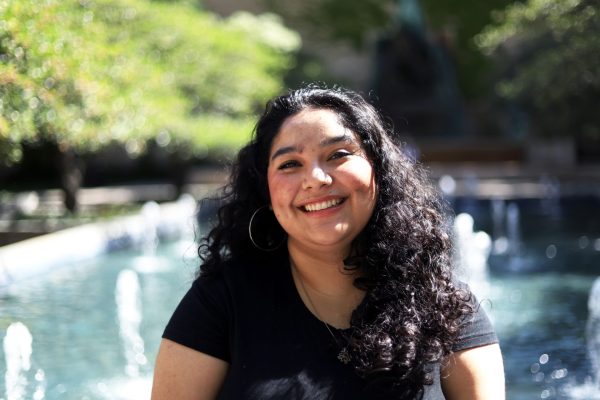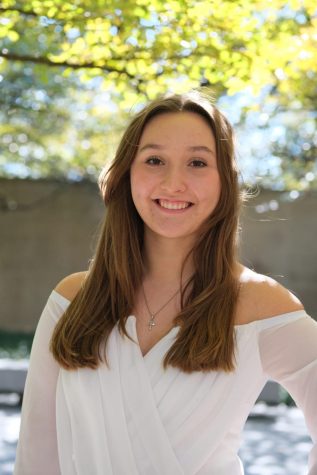When Laura Rodriguez Presa was an undergraduate journalism student at DePaul, she had no bilingual professors teaching courses centered around reporting on Latine communities.
“It seemed like there was a clear line between Spanish and English media… It seemed like that was something that we could never change,” Rodriguez Presa said.
After years of experience working at the Chicago Tribune as a bilingual journalist covering the city’s Latine community, she will return to DePaul on Jan. 27 as the first bilingual reporting fellow to teach a Latine-focused journalism course this winter quarter.
Rodriguez Presa is the first bilingual reporting professor DePaul has hired in 10 years.
There is currently one tenured Latine assistant sports communication professor at DePaul, Vincent Peña.
Rodriguez Presa will also co-advise DePaul’s two Spanish publications, La DePaulia and Pueblo.
As Latina journalists, the creation of this course is a valuable investment to our education. It provides an opportunity for everyone to learn how to report on our growing community.
Shortly after our National Association of Hispanic Journalists (NAHJ) student chapter and La DePaulia team members published “Letter from La DePaulia: It’s time to invest in education of Latinx journalists,” this fellowship opportunity and journalism course was created. The letter accompanied a speech given in September, and both asked the university to improve its diversity within the journalism department.
We want to extend our gratitude to the College of Communication and Journalism program for working with us. We’d also like to thank our interim dean Alexandra Murphy, College of Communication DEI committee president Luisela Alvarey and our co-advisers Robin Hoecker and Vincent Peña.
In just a couple of months, they created a plan for a bilingual reporting class at no additional cost, a mentor for both publications and an incoming adviser for NAHJ DePaul.
Rodriguez Presa said she wants to teach students to search for the “little” stories; ones that are centered around community yet are frequently overlooked.
“We often forget that the main power of writing is connecting human beings,” she said.
We want to continue to find ways to support bilingual and Latine journalism students at DePaul. Hiring Rodriguez Presa is a good faith step in fulfilling DePaul’s section 2.3 of its Diversity, Equity and Inclusion (DEI) 2020-2024 action plan.
Graduate and undergraduate students can sign up for the “JOUR 290: Reporting on Latinx Communities” course through their Campus Connect. In order to be accepted into the class students must email their advisor and let them know they would like to enroll by the Jan. 27 deadline.
The class is a two-credit course that will meet once every Friday from 1p.m. to 4p.m from Jan. 27 to Feb. 24.
DePaul’s full-time student tuition package includes 12-18 quarter hours, according to its website. Students taking four classes, totaling 16 hours, can enroll in this course without any additional cost.
The course is open to all students, regardless of Spanish language proficiency or major.
NAHJ DePaul co-adviser and journalism professor Robin Hoecker said the course can help all journalists even if they are not of Latine descent.
“Even people who don’t speak Spanish, I think, would want to take this class just to be able to do their jobs better,” Hoecker said.
Latine individuals have become the second largest minority group in the nation, according to the U.S. Census Bureau, with a population of 62.1 million in 2020.
For a higher educational institution to qualify as a Hispanic-Serving Institution (HSI), at least 25% of undergraduate, full-time equivalent students must be enrolled, according to the U.S Department of Education. Nearly 20% of students at DePaul are Hispanic, according to the university’s 2020 enrollment summary.
Hoecker said, “this is not going to likely radically shift the journalism curriculum right now,” though her main goal is to create a sustainable course for years to come.
DePaul has offered Spanish language reporting classes in previous years, though “it has been a while” Associate professor and chair of Journalism in the College of Communication Jason Martin said.
“There are certain particular issues with language and certainly culture and things that are very specific to Latine communities, and that benefit you as a reporter, no matter where you are in your development,” Martin said.
In the late 1990’s, students created a bilingual print publication called “Ahora DePaul,” but it folded by 2005, according to DePaul Special Collections & Archives. In 2017, Students attempted to create a NAHJ chapter but were unable to get the official status, according to Hoecker.
Hoecker told La DePaulia about her own experience as a student activist when she was a part of Penn State University’s undergraduate program.
Hoecker said she remembers documenting Black students protesting on campus against death threats they received and the ways it led to change after meetings with school administrators.
The experience was “eye-opening” and years later, she finds herself “at the other side of the table” as a professor.
Hoecker said she reflects on what she wishes those school administrators would have done to help students.
“I wish they had really listened to what the students were asking for instead of being defensive as their first reaction,” Hoecker said.
She said that individuals sometimes react defensively to signs of activism, but it can lead to “structural changes that are really important.”
Although this is a significant milestone, we want to expand our efforts to advocate for other student journalists of color to create spaces that teach them how to best report on their communities.
“I hope that it’s something that inspires the next generation of journalists,” Rodriguez Presa said.
We believe an intercultural approach is the most effective for expanding diversity in journalism. Having Latine journalism spaces within the university is not enough to call a newsroom diverse.





